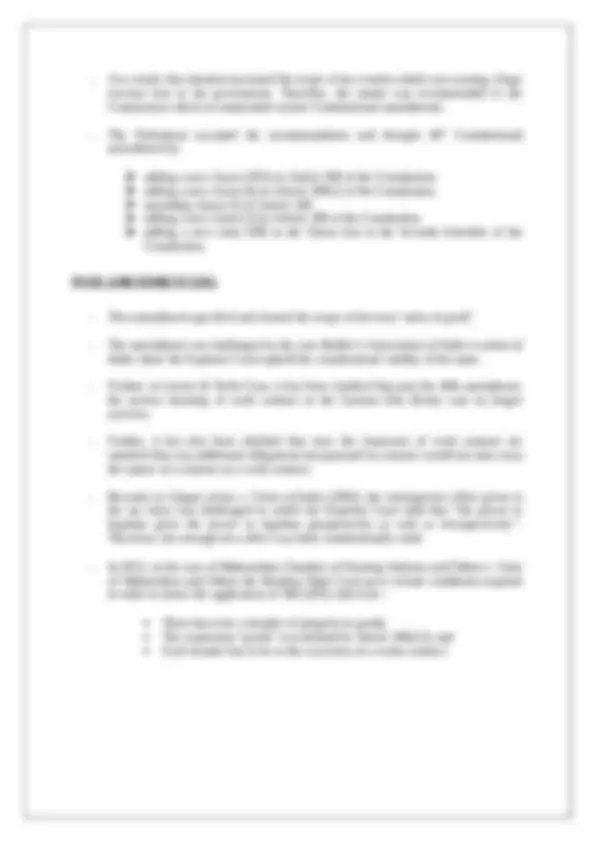



Study with the several resources on Docsity

Earn points by helping other students or get them with a premium plan


Prepare for your exams
Study with the several resources on Docsity

Earn points to download
Earn points by helping other students or get them with a premium plan
Community
Ask the community for help and clear up your study doubts
Discover the best universities in your country according to Docsity users
Free resources
Download our free guides on studying techniques, anxiety management strategies, and thesis advice from Docsity tutors
The 46th constitutional amendment in 1982 empowered states to tax the value of goods in works contracts, clarifying the scope of 'sale of goods' and introducing provisions to prevent tax evasion. It assigned states the responsibility of collecting tax on inter-state trade and specified restrictions on the taxation of goods involved in works contracts, hire-purchase agreements, and installment payments. The amendment has had a significant impact on the taxation of works contracts in India.
Typology: Study Guides, Projects, Research
1 / 2

This page cannot be seen from the preview
Don't miss anything!


The 46th^ Amendment Bill, 1981 was introduced in Lok Sabha on 03.04.1981 and was enacted as The Constitution (Forty-sixth Amendment) Act, 1982. It sought to amend Articles 269, 286, 366 and Seventh Schedule of the Constitution. The Amendment has empowered the States to tax the value of goods involved in a Works Contract in the same manner as it did when the contracts were separable. With regard to work contracts and its taxation aspects:
- As a result, this situation increased the scope of tax evasion which was causing a huge revenue loss to the government. Therefore, the matter was recommended to the Commission which recommended certain Constitutional amendments. - The Parliament accepted the recommendation and brought 46 th^ Constitutional amendment by adding a new clause (29A) in Article 366 of the Constitution. adding a new clause (h) in Article 269(1) of the Constitution. amending clause (3) of Article 269 adding a new clause (3) in Article 286 of the Constitution adding a new entry 92B in the Union List in the Seventh Schedule of the Constitution. POST-AMENDMENT ERA - This amendment specified and cleared the scope of the term “sales of good”. - The amendment was challenged in the case Builder’s Association of India vs union of India where the Supreme Court upheld the constitutional validity of the same.